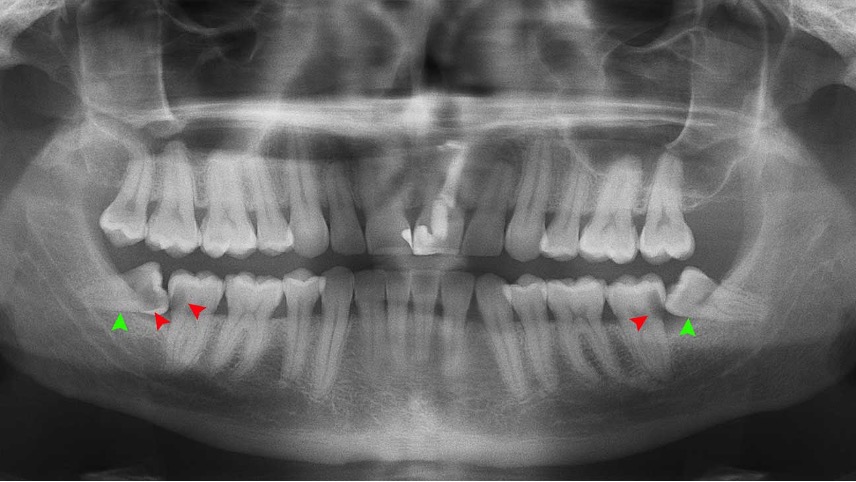The thought of removing wisdom teeth is usually met with some fear. This is because of its perceived difficulty and pain associated with its removal.
In this column, we will discuss the dreaded wisdom tooth and answer the question, should I have my wisdom teeth removed?
The removal of a wisdom tooth (or a third molar) is a common dental procedure. One does not have to fear having them removed.
Here are several important facts about wisdom teeth:
- Wisdom teeth are called third molars. Third molars normally come through the gums around the age of 17-2 Since we are regarded as young adults the assumption is that at that age we are in the “age of wisdom”.
- Most wisdom teeth have to be removed. According to the American Association of Oral and Maxillofacial Surgeons, an estimated 85% of wisdom teeth eventually need to be removed.
- One third of the population never develop their wisdom teeth.
- Studies are being conducted to prevent their growth. Wisdom teeth are the only teeth not formed in the womb. Consequently, researchers are studying ways to prevent their growth in the jaw altogether.
- 90% of people have at least one impacted wisdom tooth.
- Our diets are likely associated with impacted wisdom teeth. Early humans had more wear on their teeth due to a more fibrous diet. Today, our jaws are smaller, therefore wisdom teeth cannot find the space to come into the mouth.
Your dentist may recommend that your wisdom teeth be removed if it causes pain or infection, crowded or are stuck (impacted) under the gums. Most dentists think it’s best to have impacted wisdom teeth removed by age 21, because it’s easier to take them out when the roots and bones of your teeth are softer and not fully formed. Also, when you’re younger you tend to heal faster.
You may never have problems with your wisdom teeth, especially if you’re already older than 30 and have not had a problem thus far. Many healthy wisdom teeth come into the mouth causing no discomforts at all.
If your jaw is not large enough to make room for your wisdom teeth, they may get stuck in your jaw and unable able to get through your gums. This is called an impacted wisdom tooth. An impacted tooth can crowd other teeth creating a painful, swollen and infected covering in your gums.
Consequences of not removing your wisdom teeth include the following:
- When there is not enough space for the wisdom tooth to be useful.
- When a wisdom tooth just partially pokes through the gums, causing a flap of gum tissue to cover a piece of the tooth. Food, plaque and debris usually get trapped under the flap causing a severe infection.
- When wisdom teeth come into the mouth at the wrong angle. The tooth could be facing forward, backward and even straight up and crowded.
- Impacted wisdom teeth can cause infection and damage to other teeth and bones. A sac can develop around the roots which contain fluid and sometimes pus.
No need to wait for a regular dental checkup. Seek an opinion from your dentist as soon as possible. You can exercise wisdom with your health by being proactive and seeking good professional advice.
Dr. Kendal V. O. Major is Founder and CEO of Center for Specialized Dentistry which is a comprehensive family dental practice operating in Nassau and Freeport. He is the first Bahamian Specialist in gum diseases and dental implants since 1989. He also is a certified Fast braces provider. His practice is located at 89 Collins Avenue, Nassau at (242)325-5165 or [email protected]

Panoramic X-ray- The Lower wisdom teeth (3rd molars) leaning forward causing a
food trap and cavities on the 2nd molars

Impacted wisdom tooth leaning forward

Flap of tissue partially covering the wisdom tooth. Circled area behind is infectedfood trap and cavities on the 2nd molars





